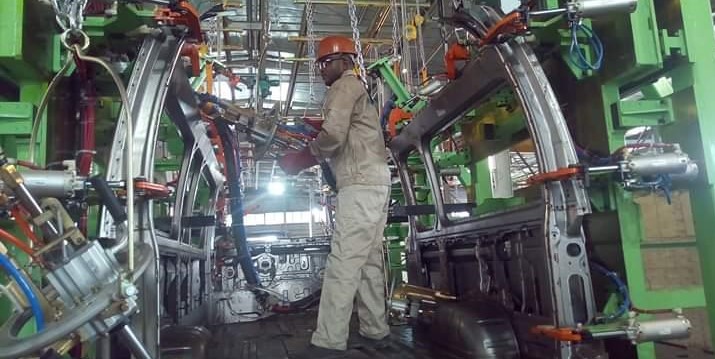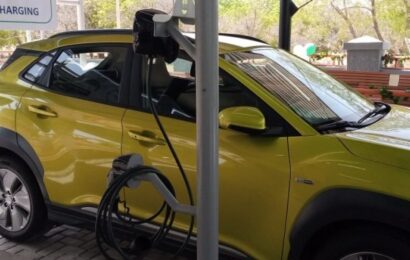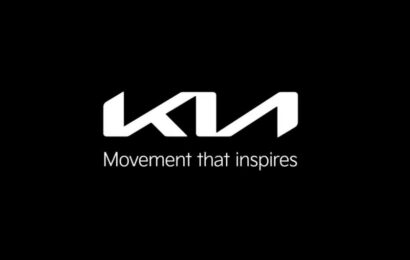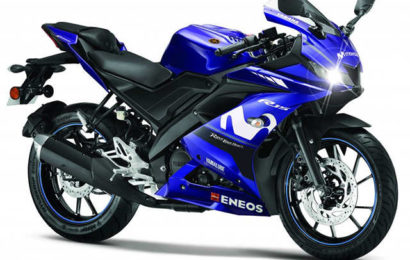The news that the Federal Government was set to unveil the first batch of about 5600 “palliative” compressed natural gas (CNG) and electric vehicles as part of the first anniversary celebration of President Bola Tinubu’s administration, has set off ripples in Nigeria’s automotive industry.
The Special Adviser to the President on Information and Strategy, Bayo Onanuga, had in a press statement on Sunday, April 21, announced that the vehicles and 20,000 CNG conversion kits, worth about N100 billion, were procured as part of the many intervention programmes to reduce the burden of increase in pump prices of petroleum products following the removal of oil subsidy on May 29, 2023.
Onanuga disclosed that the PCNGI committee’s plan to deploy “CNG buses and tricycles and the vision to get at least one milllion natural gas-driven vehicles on Nigerian roads by 2027, will mark a major energy transition in our country’s transportation industry.”
The Federal Government envisages that with many vehicles, including trucks and buses running on CNG, and electric vehicles infrastructure expanding, the use of more expensive diesel and PMS will gradually be phased out.
Four plants owned by JET Motors, Mikano Motors, Kojo Motors, and Brilliant EV “located in various parts of the country,” are involved in the assembly of the semi knocked down (SKD) components of the CNG buses.
The press statement informed that JET Motors, which is the last post of Joseph Oluwemimo Osanipin as Chief Operating Officer before his appointment six months ago, as the Director General of the National Automotive Design and Development Council (NADDC), “is coupling” the buses in Lagos towards delivering 200 units before the first anniversary of the Tinubu administration.
A fifth plant, Dana Motors, it was learnt, is producing 14-seater CNG buses for the committee
But the disclosures in the presidential press statement have since been ruffling some feathers in the Nigerian auto manufacturing sector.
Some of the key players and stakeholders have been wondering what criteria (if there were actually some) were adopted by the PCNGI committee in selecting the auto plants that benefited from the huge patronage, and why the SKD option, which will have little or no impact on the local industry, was chosen.
With the exception of Brilliant, which it has been confirmed, is not a member of the Nigerian Automotive Manufacturers Association of Nigeria (NAMA), the rest of the beneficiaries are relatively known in the industry.
The option of SKD assembly, which is almost like importing the vehicles fully built and “coupling” them locally, has also been heavily knocked by the stakeholders as being against the spirit of the new Nigerian Automotive Industry Development Plan (NAIDP-2023).
Reacting to what he described as government’s policy inconsistency in the auto sector, the Managing Director of D.V.C Ltd, Dr. David Obi, said it was unfortunate that years after vehicle plants like PAN Nigeria, Kaduna; ANAMMCO, Enugu; Volkswagen in Lagos;and lately, Innoson Vehicle Manufacturing Company Ltd (IVM) in Nnewi, took giant strides in CKD mode of auto manufacturing, Nigeria is still fixated on SKD which has little or no local value addition.
“Are we moving forward or going backwards?” said Obi who was once the Chairman of ALCMAN, the umbrella body of automotive local content manufacturers in Nigeria. “If we did not do it before, it would have been understandable. But, these companies did CKD production years ago and I supplied chemicals and sealants to some of them. So, why are we going back to SKD?”
Obi, who until recently was the Chairman of the auto group of the Manufacturers Association of Nigeria (MAN), argued against the production of the 6500 units of vehicles scheduled for delivery this year and the total of one million for production between now and 2027, based on SKD.
According to him, “coupling” vehicles on SKD basis, is also an irony considering that the NAIDP-2023 for which an inter-agency and inter-ministerial committee was inaugurated early this month by the Industry Trade & Investment Minister, Dr. Nkiruka Uzoka-Anite, is promoting “the transition of SKD to CKD type of
automotive manufacturing over the next 10
years.”
This is a view shared by the General Manager of a company behind the success of a Japanese brand in the local auto industry, who wondered if the NADDC DG and the Industry, Trade and Investment Minister were privy to “this disservice to the Nigerian auto industry.”
He lamented a situation where the NAIDP-2023 seems to be indicating the way forward, and the implementers “are suddenly approving something else and giving contracts to companies who have not delivered such tasks before.”
The GM who pleaded anonymity, alleged that the procurement smacks of a lot of “pay back” and “padi padi” arrangements, which, according to him, could be the only reason why a company said to have contributed to the campaign fund of one of the presidential candidates in the 2023 presidential election was rewarded with a huge slice of the bus contract.
He further remarked, “How were the companies that won the contracts even selected? Was there a transparent bid process? If so, how come an entirely new assembly plant that is yet to commence operation was awarded the contract for the assembly of tricycles? And, what roles are the existing and popular bus assemblers and manufacturers with pedigree playing in the entire presidential CNG initiative?”
An Akure-based tricycle producer and founder of Lafbart Innovations and Consulting Ltd, Mr. Femi Olafunmiloye, also spoke on the tricycle contract saying, “Importing SKD tricycles for example where local CKD capabilities exist deprives the economy of maximum local participation and knowledge transfer. Going the CKD way assures of at least 35 percent local content input. This further creates local component market in the country.”
The issue of whether there was a bid process was addressed by another key player in the industry, and Managing Director of Transit Support Services Ltd (TSS), Mr. Frank Nneji, who took a wider view of the bus contract, declaring that assembling the vehicles locally wether on CKD or SKD basis, have benefits.
The most important thing, he stated, is to advance the local production capabilities and create better technical transfer. This is in addition to the larger public being served through lower costs of transportation.
Nneji further stated, “The information that orders have been placed is not a new one. I also know that sometime ago, there was some kind of competitive bid. We (TSS) were called in to participate. In a competitive bid, the experts have the right based on their criteria to choose what they want or who they want based on the laid down criteria.”
But, not a few of the other auto makers and stakeholders have since cast a huge question mark on the claim of a bid process by the PCNGI committee, even as some have questioned the composition of the “experts” none of whom is a member of the auto manufacturers association or is a core industry player.
They argued that since the “experts” are not auto makers, and may not have even heard of the Auto Policy (NAIDP 2023) not to talk of understanding the content, “it will be difficult for them to know the difference between SKD and CKD or know who has capacity to produce what vehicle.”
Interestingly, when contacted on Wednesday, two prominent managers in PAN, Kaduna and ANAMMCO, Enugu, said their companies were neither contacted to bid to produce the buses, nor were they even aware.
Similarly, speaking on phone, the Chairman of Innoson Vehicle Manufacturing Co Ltd, Dr. Innocent Chukwuma, CON, said his company, which is a member of NAMA, did not know when the bid process opened or when it closed.
Speaking further, Chukwuma asked, “Is there anybody in this country who does not know that Innoson is so far the only auto manufacturer in this country that has been doing CKD production of CNG buses of various sizes for about two years now? So, why was it that when it was time to bid for the contract, nobody remembered us. Let them tell Nigerians the truth.”
The Innoson Chairman argued that being the largest bus manufacturer in the country with a new plant dedicated to the manufacture of CNG vehicles coming on stream this year in Nnewi, IVM should have been tasked with the production of a good number of the buses.
About 25 years ago when the Federal Government raised the pump prices of petroleum products (from N20 to N22 in the case of PMS), one of the measures taken to “cushion the effect” was the procurement of a total of 1,000 units of mass transit buses for distribution to states and various groups.
But, mindful of the positive impact such a bulk purchase was to have on Nigeria’s auto industry, the government of President Olusegun Obasanjo insisted that all the buses must be produced by the existing auto plants.
Not surprisingly, ANAMMCO in Enene, near Enugu, which was the foremost bus manufacturer with an installed capacity to produce at least 1,000 buses (and 7,500 trucks) annually was tasked with producing the highest number: 700 units out of the 1000 ordered
But IVM has since joined the bus manufacturing industry with a wide range of models.
Drawing attention to this advantage in a statement, the Head of Communications at Innoson Vehicles, Mr. Cornel Osigwe, said that at various times the Nnewi plant has demonstrated the capacity to produce CNG-powered vehicles.
“The Innoson commenced the manufacture of CNG buses long before the politics of oil subsidy removal started, And that is why I wonder why we were totally excluded from the entire bid process.”
Osigwe appealed to the committee to explain to Nigerians if there were preferred bidders and why the auto plants with high installed capacities to manufacture buses on CKD bases, were not given equal opportunities to bid.
The press release further stated, “We at Innoson have been manufacturing various models of CNG buses for over two years now. We made history by becoming the first, and so far the only, manufacturer of CNG/LNG-powered vehicles in Nigeria, for which we have earned many recognitions, including awards from The Sun Publishing, Silverbird and the Nigeria Auto Journalists Association (NAJA), all in 2023.
“Moreover, the presentation of Quality Management Certificate and the MANCAP Certificate by the Standards Organisation of Nigeria {SON} to Innoson in 2023 is a confirmation of our adherence to high international quality standards in the manufacture of our range of vehicles.”
A member of NAMA Board of Directors, Bennett Ejindu, bemoaned the loss of the great opportunity to use the procurement of the thousands of CNG and electric vehicles to rev up activities in the auto industry which has been witnessing a long lull.
Ejindu who is the Chief Operating Officer of ANAMMCO, blamed the non adoption of the CKD option on the absence of a member of NAMA in the Presidential committee.
He explained why, saying “This is because I know that if a member of NAMA were to be in that committee, even if it was an oversight, that person would have pointed out that look the way for this thing to happen would be to let the Nigerian automotive plants produce the vehicles in a way “to trigger life again back in the automotive industry.”
Ejindu stated that the most important thing is not if Innoson, ANAMMCO, or PAN bidded and won the contract to produce the buses,or not, but that the contracts are executed in such a way that the multiplier effects are felt in the industry.
According to him, the desired maximal impact would have been achieved if companies that got the orders but do not have the capacity for CKD production were made to approached plants with higher capacities, for contract production.
According to him, this is not new in the local industry, because a few years ago, ANAMMCO collaborated with TSS to assemble thousands of Shacman trucks for Dangote.
All hope seems not lost that the PCNGI committee will address the concerns of the core auto makers. That much was admitted by the NAMA Chairman, Bawo Omagbitse, last week when he said that the association’s leadership was “still consulting” to know what next to do.
Also hopeful was Olafunmiloye, when he counselled, “Delivering this dream of the government is key to the development of the automotive sector. The government needs to continue to engage with existing players in the field.
“There are existing Infrastructure and capabilities that can be taken full advantage of. Local industries under the NAMA have over the years invested hundreds of millions of dollars preparing for the economy to maximally benefit from a laudable initiative like this one.”
He advocated for a “continuous handshake between the PCNGI, NADDC, and NAMA for President Tinubu’s initiative to impact positively on the country’s mass transit system, and at the same time bring back life to the Nigerian auto industry.
This, the Lafbart MD stated, “is critical to absorb the greatest benefit from this initiative and strengthen the automotive sector to regulate and ensure standards and quality are adhered to.”







